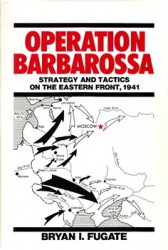The Fabii were one of the most powerful of the Patrician houses. For seven successive years one of the Consuls was always a Fabius. The Fabii had been among the leading opponents of the Agrarian Law; and Kaeso Fabius had taken an active part in obtaining the condemnation of Sp. Cassius. But shortly afterward we find this same Kaeso the advocate of the popular rights, and proposing that the Agrarian Law of Cassius should be carried into effect. He was supported in his new views by his powerful house, though the reasons for their change of opinion we do not know. But the Fabii made no impression upon the great body of the Patricians, and only earned for themselves the hearty hatred of their order. Finding that they could no longer live in peace at Rome, they determined to leave the city, and found a separate settlement, where they might still be useful to their native land. One of the most formidable enemies of the republic was the Etruscan city of Veii, situated about twelve miles from Rome. Accordingly, the Fabian house, consisting of 306 males of full age, accompanied by their wives and children, clients and dependents, marched out of Rome by the right-hand arch of the Carmental Gate, and proceeded straight to the Cremera, a river which flows into the Tiber below Veii. On the Cremera they established a fortified camp, and, sallying thence, they laid waste the Veientine territory. For two years they sustained the whole weight of the Veientine war; and all the attempts of the Veientines to dislodge them proved in vain. But at length they were enticed into an ambuscade, and were all slain. The settlement was destroyed, and no one of the house survived except a boy who had been left behind at Rome, and who became the ancestor of the Fabii, afterward so celebrated in Roman history. The Fabii were sacrificed to the hatred of the Patricians; for the consul T. Menenius was encamped a short way off at the time, and he did nothing to save them.




 World History
World History









